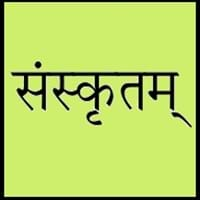Irish vs Sanskrit
Countries
European Union, Ireland
India
National Language
Ireland
India
Second Language
Ireland
Not spoken in any of the countries
Speaking Continents
Europe
Asia
Minority Language
United Kingdom
Not spoken in any of the countries
Regulated By
Foras na Gaeilge
Not Available
Interesting Facts
- In Irish language, there are no exact words for "yes" or "no".
- There are different set of numbers for counting humans and another set for counting non-humans in Irish Language.
- Sanskrit language has highest number of vocabularies than any other language.
- Sanskrit Language has proved to help in speech therapy, also it increases concentration and helps to learn maths and science better.
Similar To
Not Available
Old German Language
Derived From
Not Available
Prakrit Language
Alphabets in
Irish-Alphabets.jpg#200
Sanskrit-Alphabets.jpg#200
Writing Direction
Left-To-Right, Horizontal
Left-To-Right, Horizontal
Hello
Dia dhuit
नमस्कारः (namaskāraḥ)
Thank You
Go raibh maith agat
धन्यवादाः (dhanyawādāh)
How Are You?
Conas atá tú ?
कथमस्ति भवान् (kathamasti bhawān)
Good Night
Oíche mhaith
शुभरात्री (shubharātrī)
Good Evening
Tráthnóna maith duit
शुभः सायंकालः
Good Afternoon
Tráthnóna maith duit
शुभ दुपार
Good Morning
Dia dhuit ar maidin
सुप्रभातम् (suprabhātam)
Please
le do thoil
कृपया (kripayā)
Sorry
Tá brón orm
कृपया क्षम्यताम् (kripayā kshamyatām)
Bye
Slán
पुनः मिलामः(punah milamah)
I Love You
Is breá liom thú
त्वामनुरजामि (twāmanurajāmi)
Excuse Me
Gabh mo leithscéal
कृपया क्षम्यताम् (kripayā kshamyatām)
Dialect 1
Connacht Irish
Not present
Where They Speak
Connacht
Not Available
Dialect 2
Munster Irish
Not present
Where They Speak
Munster
Not Available
Dialect 3
Ulster Irish
Not present
Where They Speak
Ulster
Not Available
Speaking Population
Not Available
Not Available
Second Language Speakers
Not Available
Native Name
Gaeilge (na hÉireann) / An Ghaeilge
संस्कृतम् (saṃskṛtam)
Alternative Names
Erse, Gaeilge, Gaelic Irish
Not Available
French Name
irlandais moyen
sanskrit
German Name
Mittelirisch
Sanskrit
Pronunciation
[ˈɡeːlʲɟə]
[səmskr̩t̪əm]
Ethnicity
Irish people
Not Available
Language Family
Indo-European Family
Indo-European Family
Subgroup
Celtic
Indo-Iranian
Early Forms
Primitive Irish, Old Irish, Middle Irish, Classical Irish, Irish
Vedic Sanskrit
Standard Forms
An Caighdeán Oifigiúil
Sanskrit
Signed Forms
Irish Sign Language
Not Available
Scope
Individual
Individual
ISO 639 6
Not Available
Not Available
Glottocode
iris1253
sans1269
Linguasphere
50-AAA
No data available
Language Type
Living
Ancient
Language Linguistic Typology
Verb-Subject-Object
Subject-Object-Verb
Language Morphological Typology
Fusional
Synthetic
Irish and Sanskrit Language History
Comparison of Irish vs Sanskrit language history gives us differences between origin of Irish and Sanskrit language. History of Irish language states that this language originated in c. 750 whereas history of Sanskrit language states that this language originated in 2000 B.C.. Family of the language also forms a part of history of that language. More on language families of these languages can be found out on Irish and Sanskrit Language History.
Irish and Sanskrit Greetings
People around the world use different languages to interact with each other. Even if we cannot communicate fluently in any language, it will always be beneficial to know about some of the common greetings or phrases from that language. This is where Irish and Sanskrit greetings helps you to understand basic phrases in Irish and Sanskrit language. Irish word for "Hello" is Dia dhuit or Sanskrit word for "Thank You" is धन्यवादाः (dhanyawādāh). Find more of such common Irish Greetings and Sanskrit Greetings. These greetings will help you to be more confident when conversing with natives that speak these languages.
Irish vs Sanskrit Difficulty
The Irish vs Sanskrit difficulty level basically depends on the number of Irish Alphabets and Sanskrit Alphabets. Also the number of vowels and consonants in the language plays an important role in deciding the difficulty level of that language. The important points to be considered when we compare Irish and Sanskrit are the origin, speaking countries, language family, different greetings, speaking population of these languages. Want to know in Irish and Sanskrit, which language is harder to learn? Time required to learn Irish is 36 weeks while to learn Sanskrit time required is 20 weeks.





